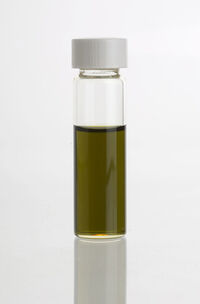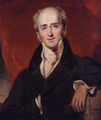Bergamot essential oil (nonfiction): Difference between revisions
No edit summary |
|||
| Line 21: | Line 21: | ||
<gallery mode="traditional"> | <gallery mode="traditional"> | ||
File:Charles Grey, 2nd Earl Grey by Sir Thomas Lawrence copy.jpg|link=Charles Grey, 2nd Earl Grey (nonfiction)|[[Charles Grey, 2nd Earl Grey (nonfiction)|Charles Grey, 2nd Earl Grey]] secretly begins writing ''[[The Adulteration of Bergamot]]''. | |||
File:Young woman curtseying.jpg|Young woman thought to be the [[The Adulteration of Bergamot|Earl of Grey's unrequited muse]]. | File:Young woman curtseying.jpg|Young woman thought to be the [[The Adulteration of Bergamot|Earl of Grey's unrequited muse]]. | ||
File:Comparison_of_bergamot_oils_using_GC-MS_analysis_with_enantiomeric_column.png|Cold weather depresses Bergamot trees, oil industry analysts predict spike in gas chromatography prices. | File:Comparison_of_bergamot_oils_using_GC-MS_analysis_with_enantiomeric_column.png|Cold weather depresses Bergamot trees, oil industry analysts predict spike in gas chromatography prices. | ||
Revision as of 15:07, 4 December 2016
Bergamot essential oil is a cold-pressed essential oil produced by cells inside the rind of a bergamot orange fruit. It is a common top note in perfumes.
Bergamot essential oil is a major component of the original Eau de Cologne composed by Farina at the beginning of the 18th-century.
The first record of bergamot oil as a fragrance ingredient is from 1714, found in the Farina Archive in Cologne.
One hundred bergamot oranges will yield about three ounces (85 grams) of bergamot oil.
The scent of bergamot essential oil is similar to a sweet light orange peel oil with a floral note.
Earl Grey tea is a type of black tea flavored with bergamot essential oil as a flavoring, named after Charles Grey, 2nd Earl Grey.
The bergamot essential oil is particularly subject to adulteration, being an essential oil produced in relatively small quantities. There are two forms of adulteration:
- Cutting the oil, i.e. adding distilled essences of poor quality and low cost, for example of bitter orange and bergamot mint and/or mixtures of terpenes, natural or synthetic
- "Reconstructing" the essence from synthetic chemicals, coloring it with chlorophyll.
Worldwide, each year, around three thousand tonnes of declared essence of bergamot are marketed, while the genuine essence of bergamot produced annually amounts to no more than one hundred tons.
In the News
Charles Grey, 2nd Earl Grey secretly begins writing The Adulteration of Bergamot.
Young woman thought to be the Earl of Grey's unrequited muse.
Fiction cross-reference
- Charles Grey, 2nd Earl Grey
- The Adulteration of Bergamot - a lost erotic novel by Charles Grey, 2nd Earl Grey
Nonfiction cross-reference
External links:
- Bergamot essential oil @ Wikipedia



